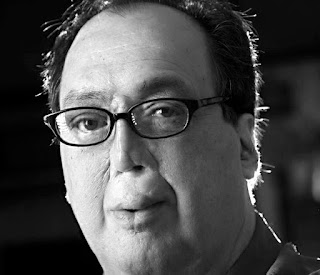Howard Shulman is the author of the memoir Running From the Mirror, which recounts his childhood in foster care, undergoing surgeries for his facial disfigurement, and his efforts in adulthood to come to terms with his past and move forward. He lives in San Diego.
Q: Why did you decide
to write this memoir?
A: For years, friends
encouraged me to share my story, but I resisted. Then, about a decade ago,
after reading several popular memoirs, like Running With Scissors, The Glass
Castle, and Eat, Pray, Love, I thought I could write something equally compelling.
When I started, I had
no idea what I was doing. After attending writing conferences and workshops and
getting help from editors, coaches, and friends, I managed to finish my book.
Q: You describe many
harrowing experiences you went through. How difficult was it to write about
painful times in your life?
A: It was tough at
first. But then I discovered how cathartic it could be to share the experiences
and feelings I had kept secret for so long. It was a big surprise that I could
open up to complete strangers.
I also realized that
to create a successful memoir, I needed to be as honest and uncensored as
possible. I really had no choice. If an author holds back, readers will know.
Q: Did you need to
conduct any research to write the book, or was it based mostly on your
memories?
A: I relied mostly on
memory, but I also drew from copious medical and school records as well as documents
from the state of New Jersey and my social workers.
Q: You write that “family
is anyone we truly touch, wherever they may be found.” Is that one of the
themes you hope readers take away from this book?
A: Yes. Obviously I learned
early on that we can’t always count on those connected to us by blood. The kindness
and compassion of friends and strangers can be more meaningful and affirming than
what we experience with relatives.
Rejection is another theme.
We have all experienced it in one form or another, whether by family members,
friends, lovers, or colleagues. It affects our psyche and hearts, so we can’t
help but take it personally.
I discovered, though,
that even the most hurtful rejections don’t have to paralyze us. In fact, they
can serve to build determination and a never-quit attitude, which have helped
sustain me.
Forgiveness also
plays a major role in my book. Much has been written about the power of
forgiveness, and I experienced it firsthand when I met my birth mother at age
40. Forgiving her opened the door to feeling worthy of a long-term
relationship, and today I’m now happily married.
My story shows that
anything is possible. Even in the most dire of circumstances and even when we are
made to feel like an outsider by everyone around us, we can overcome it.
Q: What are you
working on now?
A: I’m pleased to
report that the book has garnered some film interest, so I’m working with a
screenwriter to develop a script. I’m also collecting material for a second
book that I hope will raise awareness about kids in foster care.
Q: Anything else we should
know?
A: Even though I had
a rough beginning in life, I feel blessed. I’ve traveled, met a number of
extraordinary people, and had some wild experiences. Now I have a beautiful
wife and two stepdaughters, and we live in sunny Southern California. I’m
grateful for the gift of a healthy family and a home filled with love and
laughter.
--Interview with Deborah Kalb


No comments:
Post a Comment